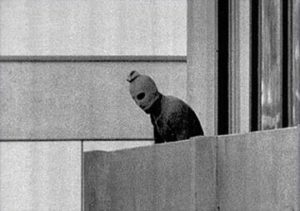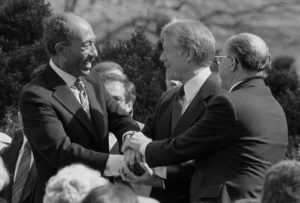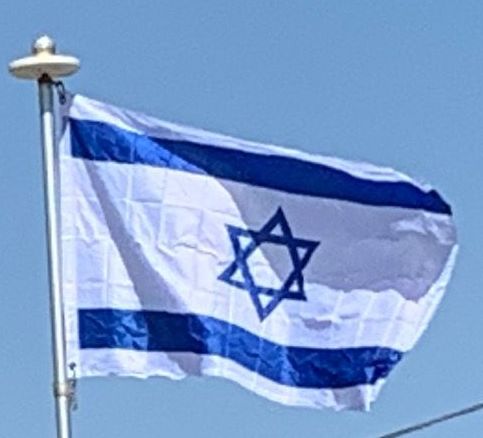
On 6 October 1973, as Jews were observing Yom Kippur, the Egyptian and Syrian armies launched a surprise attack against Israeli forces in the Sinai Peninsula and Golan Heights, that opened the Yom Kippur War. The war ended on 25 October with Israel successfully repelling Egyptian and Syrian forces but having suffered over 2,500 soldiers killed in a war which collectively took 10–35,000 lives in about 20 days. An internal inquiry exonerated the government of responsibility for failures before and during the war, but public anger forced Prime Minister Golda Meir to resign. In July 1976, an airliner was hijacked during its flight from Israel to France by Palestinian guerrillas and landed at Entebbe, Uganda. Israeli commandos carried out an operation in which 102 out of 106 Israeli hostages were successfully rescued.

Further Conflict and Peace Process:
The 1977 Knesset elections marked a major turning point in Israeli political history as Menachem Begin’s Likud party took control from the Labor Party. Later that year, Egyptian President Anwar El Sadat made a trip to Israel and spoke before the Knesset in what was the first recognition of Israel by an Arab head of state. In the two years that followed, Sadat and Begin signed the Camp David Accords (1978) and the Israel–Egypt Peace Treaty (1979). In return, Israel withdrew from the Sinai Peninsula and agreed to enter negotiations over an autonomy for Palestinians in the West Bank and the Gaza Strip.

On 11 March 1978, a PLO guerilla raid from Lebanon led to the Coastal Road massacre. Israel responded by launching an invasion of southern Lebanon to destroy the PLO bases south of the Litani River. Most PLO fighters withdrew, but Israel was able to secure southern Lebanon until a UN force and the Lebanese army could take over. The PLO soon resumed its policy of attacks against Israel. In the next few years, the PLO infiltrated the south and kept up a sporadic shelling across the border. Israel carried out numerous retaliatory attacks by air and on the ground.
Meanwhile, Begin’s government provided incentives for Israelis to settle in the occupied West Bank, increasing friction with the Palestinians in that area. The Basic Law: Jerusalem, Capital of Israel, passed in 1980, was believed by some to reaffirm Israel’s 1967 annexation of Jerusalem by government decree, and reignited international controversy over the status of the city. No Israeli legislation has defined the territory of Israel and no act specifically included East Jerusalem therein. The position of the majority of UN member states is reflected in numerous resolutions declaring that actions taken by Israel to settle its citizens in the West Bank, and impose its laws and administration on East Jerusalem, are illegal and have no validity. In 1981 Israel annexed the Golan Heights, although annexation was not recognized internationally. Israel’s population diversity expanded in the 1980s and 1990s. Several waves of Ethiopian Jews immigrated to Israel since the 1980s, while between 1990 and 1994, immigration from the post-Soviet states increased Israel’s population by twelve percent.
